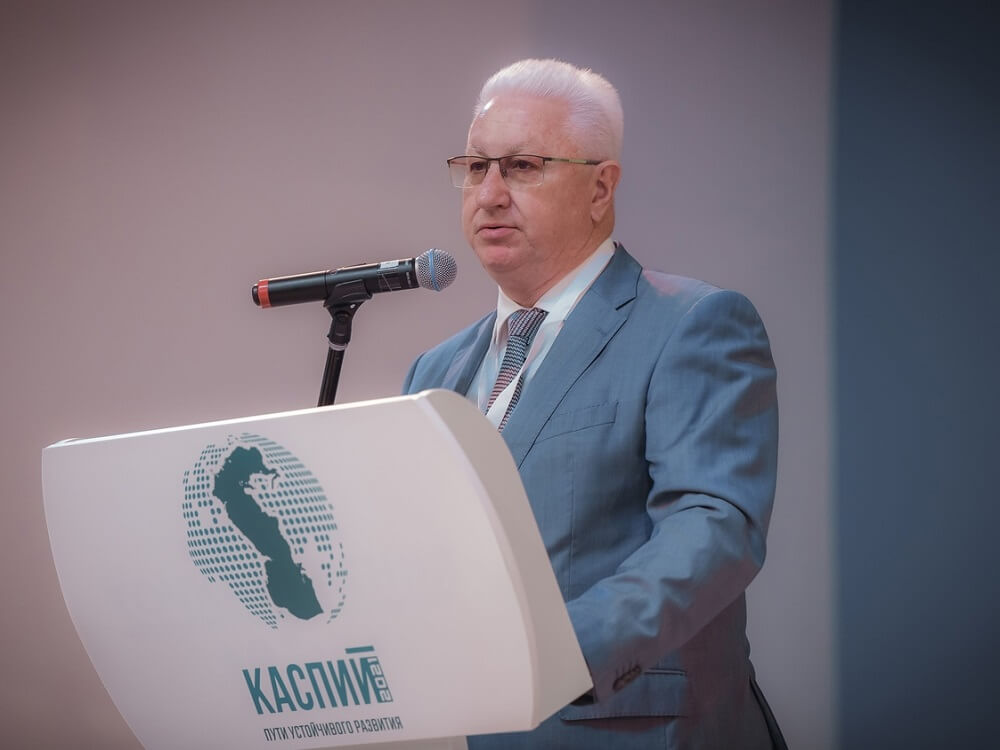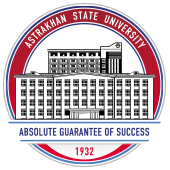Konstantin Markelov: “The Caspian Day Reminds All of Us of the Importance of Caspian Open Dialogue”
 12.08.2021
12.08.2021
On the Day of the Caspian Sea, which is celebrated every August 12, the ASU rector addressed his colleagues from the Caspian countries with words of gratitude for the productive joint work and with a call for further fruitful cooperation for the benefit of the Caspian region.
Dear colleagues,
The Day of the Caspian Sea reminds all of us of the importance of an open dialogue between representatives of science, businesses and state authorities of the Caspian countries for interaction to protect the aquatic environment and biological resources of the Caspian Sea, preserve the culture of the Caspian peoples, and develop economic and political ties between the Caspian states.
Astrakhan State University takes an active part in the development of the Caspian macroregion and has proposed a number of initiatives. For example, consolidation of the efforts of the scientific and educational elite of the Russian regions bordering the Caspian sea within the framework of the Caspian World-Class Scientific & Educational Center will help strengthen Russia’s positions at foreign-policy level. It also refers to the export of Russian education to the Caspian countries, to cooperation of Russian and international science to overcome the major challenges of the Caspian macroregion and to coordination of international projects.
ASU is a member of the Council for Scientific, Engineering and Innovative Cooperation “Science and Innovation of the Caspian Sea”. Within the framework of the council activities, the university participates in joint research aimed at the renewal of biological resources and preservation of the unique ecosystem of the Caspian Sea, organizes scientific and practical seminars and conferences.
The Commission for Science, Research & Technology within the framework of the Association of State Universities and Research Centers of the Caspian Sea States unites the efforts of the Caspian scientists to address common issues of the scientific development of society, create a single information scientific space and support the most promising research areas. Astrakhan State University was approved as coordinator of the commission.
The Transport & Logistics Consortium of Caspian Higher Educational Institutions was established in 2018 upon initiative of ASU to develop transport logistics of the Caspian region, and it has united 18 universities. Within the framework of the consortium, joint research is carried out on the development of the transport and logistics sector, environmental monitoring of the Caspian Sea with UAVs and the Caspian seabed relief with underwater robots.
ASU has its own development — a remotely controlled underwater vehicle, capable of operating autonomously, diving to the depths of up to 150 m and performing bottom studies, video filming the movement of schools of fish, using the developed sensors to determine the salinity of water and the presence of chemical contaminants (including oil), and also the condition of underwater objects.
ASU scientists are getting ready to implement project “Maritime Multipurpose Unmanned Platform”. Creating a universal maritime robotic carrier capable of autonomous navigation will allow to address the issues of developing the resources of the world ocean in general and the Caspian Sea in particular. The project is a key one for the NTI Initiative because of the development of new areas in the field of resource development technologies, innovative shipbuilding and e-navigation.
The Department of Social, Political and Economic Research of Eurasia & Orient of Astrakhan State University deals with the issues of sociopolitical, economic and geopolitical processes in the Caspian region and national security. The department participates in the regional integration of the Caspian states and cooperation with scientific and educational centers of the Caspian countries. Since 2004, scientific journal “The Caspian Region: Politics, Economics, Culture” has been published, which has gained wide popularity and is included in the list of leading peer-reviewed scientific journals and publications approved by the Higher Attestation Commission of the Russian Federation.
The UNESCO Chair “Learning Society and Human Sustainable Development” of ASU has become a regional center, contributing to intensification of the development of innovative educational programmes and projects aimed at implementing the UNESCO ideas and mission. The department deals with the issues of strengthening the role of universities of the Caspian states in addressing the issues of sustainable development of the region, developing the learning community in the region on the basis of social partnership, establishing intercultural communications in the region, organizing consistent and comprehensive support for young scientists to attract them to teaching and research activities.
Online meetings, webinars and discussion platforms on topical scientific issues, involving scientists, students and professors, have been organized by joint efforts of scientific teams of the Caspian countries.
Large-scale involvement of students and researchers of the Caspian universities in joint scientific and educational activities is also supported through projects like “Online International Against COVID-19”, which has involved more than 600 participants, and roundtable “Implementation of the UN Sustainable Development Goals in the Caspian Region” with the involvement of hundreds of scientists on the issues of ecology and conservation of aquatic biodiversity.
I would like to thank the rectors, research teams and representatives of associations for the great joint work aimed at preserving and developing the Greater Caspian Region. I look forward to further fruitful cooperation on conducting activities for the benefit of the Caspian region.


